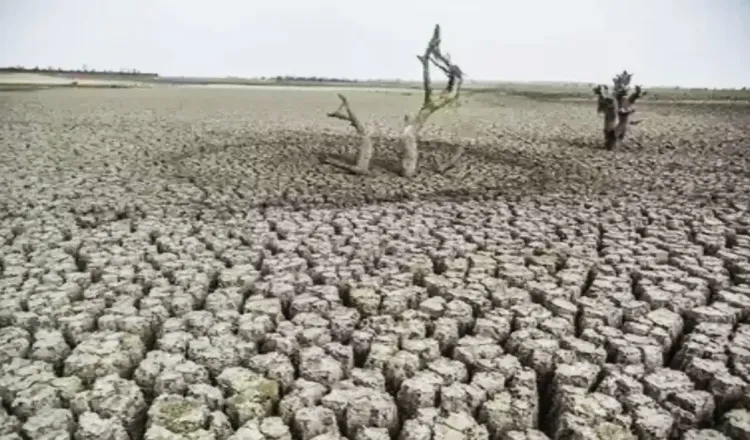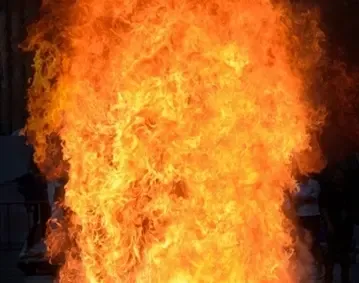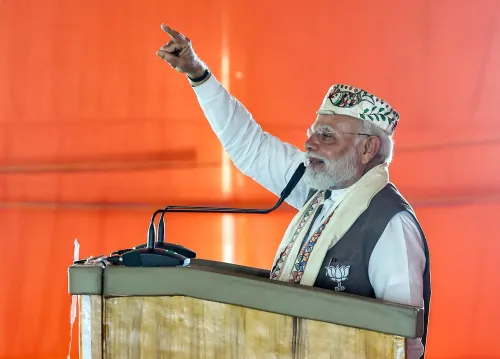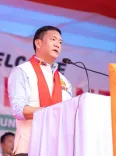Around 200 Nations Pledge to Prioritize Land Restoration and Drought Resilience

Riyadh, Dec 14 (NationPress) Close to 200 nations on Saturday pledged to prioritize land restoration and drought resilience in their national policies and international collaborations as a vital approach for food security and climate adaptation.
The nations also made considerable strides in laying the foundation for a future global drought framework, which they aim to finalize at COP17 in Mongolia in 2026.
Notably, over $12 billion was committed to combat desertification, land degradation, and drought globally, focusing particularly on the most vulnerable nations.
These developments emerged from the 16th Conference of the Parties (COP16) to the United Nations Convention to Combat Desertification (UNCCD).
After two weeks of rigorous discussions on addressing land degradation, desertification, and drought, the largest and most inclusive United Nations land conference concluded in Riyadh, Saudi Arabia.
Key agreements reached at COP16 included the establishment of a Caucus for Indigenous Peoples and a Caucus for Local Communities to ensure their distinct perspectives and challenges are adequately represented; a continuation of the Convention's Science-Policy Interface to enhance science-based decision-making; and the mobilization of private sector involvement under the Business4Land initiative.
COP16 was the largest and most diverse UNCCD COP to date, attracting over 20,000 participants, including approximately 3,500 from civil society, and featuring more than 600 events as part of the inaugural Action Agenda to engage non-state actors in the convention's activities, according to an official statement.
In her remarks, United Nations Deputy Secretary-General Amina J. Mohammed stressed: "Our efforts do not conclude with the end of COP16. We must persist in addressing the climate crisis; it is a call to action for everyone to adopt inclusivity, innovation, and resilience."
“Youth and Indigenous peoples must be central to these discussions. Their wisdom, voices, and creativity are essential as we shape a sustainable future filled with renewed hope for future generations.”
In his closing comments, COP16 President, Saudi Arabia’s Minister of Environment, Water and Agriculture Abdulrahman Alfadley, indicated that the conference marked a pivotal moment in raising global awareness regarding the urgent need to enhance land restoration and drought resilience.
"The Kingdom’s hosting of this significant conference underscores its ongoing dedication to environmental issues and sustainable development. It reaffirms its commitment to collaborating with all parties to safeguard ecosystems, boost international cooperation against desertification and land degradation, and tackle drought.
"We aspire for the results of this session to catalyze a major shift that fortifies efforts to protect land, mitigate its degradation, enhance capabilities to confront drought, and promote the well-being of communities worldwide."
During the conference, attendees learned that the UNCCD estimates that approximately $2.6 trillion in total investments are necessary by 2030 to restore over one billion hectares of degraded land and bolster resilience to drought.
This amounts to $1 billion in daily investments from now until 2030 to achieve global land restoration objectives and address desertification and drought.
New commitments for extensive land restoration and drought preparedness were presented, including the Riyadh Global Drought Resilience Partnership, which garnered $12.15 billion to assist 80 of the world's most vulnerable nations in enhancing their drought resilience, including a $10 billion pledge from the Arab Coordination Group.
The Great Green Wall (GGW), an African-led initiative aimed at restoring 100 million hectares of degraded land, also secured EUR 11 million from the Italian government for landscape restoration in the Sahel and EUR 3.6 million from the Austrian government to improve coordination and implementation of the initiative across 22 African nations.
This effort is part of the GGW Accelerator, a UNCCD-supported initiative to fulfill ambitions for a greener, more prosperous Sahel.
Additionally, the US and several partner nations and organizations announced total investments nearing $70 million to promote the Vision for Adapted Crops and Soils (VACS).
The initiative aims to develop resilient food systems based on diverse, nutritious, and climate-adapted crops cultivated in healthy soils.









